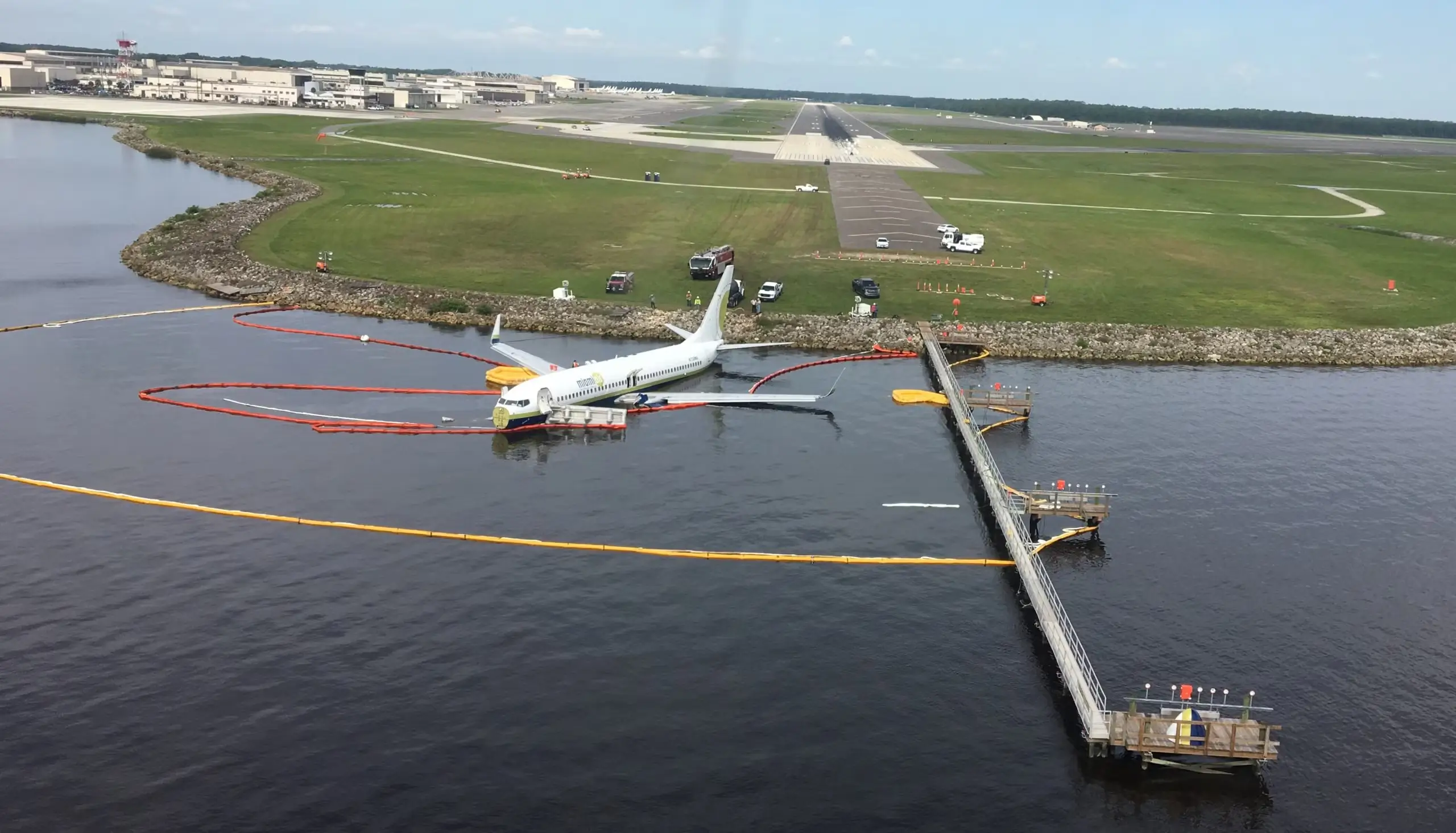Why Are Jacksonville Flight Discontinuations Happening? Airlines Explain
Jacksonville is a thriving city well-known for its sand-coloured beaches that are sand-colored and its rich cultural heritage. It is currently experiencing an alarming trend in travel: the discontinuation of flights. While residents plan their next vacation for business or vacation, they’re faced with fewer alternatives at airports. This has caused a stir among travellers and spurred discussions concerning the future direction of travel by air across the country. What’s the cause of these cancellations? Airlines have provided explanations that show a complicated array of reasons that impact local flights. Understanding the reasons behind these is essential not only for people who are looking to fly but for anyone who is involved in the Jacksonville economy or tourism industry. Let’s take a look at what’s going on behind the Jacksonville flight discontinuations and how it affects everyone.
The reasons behind these discontinuities
Airline interruptions in Jacksonville result from a variety of interconnected reasons.
Demand is decreasing due to COVID-19
The COVID-19 pandemic dramatically altered travel patterns, which led to an enormous decrease in the demand for flights. The public became more wary of travelling, opting for more secure alternatives or avoiding flights completely.
Airlines were faced with empty seats and decreasing passengers as restrictions grew tighter and health risks loomed. This abrupt shift in the market forced carriers to review their routes, especially in cities such as Jacksonville.
As the situation changed as the virus spread, a lot of travellers remained cautious even after restrictions were eased. Fear of transmission of the virus caused them to stay in their homes longer than they had expected.
With fewer travellers taking flights, airlines had no choice other than to decrease services, especially in regions where demand was already sluggish. Jacksonville’s cancellation of flights is a sign of this trend, which is affecting airports across the nation with uncertain recovery prospects.
Airport infrastructure limitations
Jacksonville International Airport (JAX) is facing significant challenges with its infrastructure. With the fluctuation in Demand for passengers, the airport has to keep up with Demand and adapt its facilities. The limited runway capacity can lead to congestion at high traffic times.
Furthermore, outdated terminals could cause bottlenecks, which frustrate customers. Lines for security and congested waiting areas can hinder the overall experience for customers. This could deter prospective passengers from choosing Jacksonville for their departure location.
The absence of modern facilities affects airlines’ desire to extend their routes. If airports are unable to accommodate larger aircraft or more frequency flights, airlines may decide to reconsider their plans within the area.
The need to upgrade infrastructure is vital for JAX to be competitive. The improved infrastructure will draw more airlines to the airport and improve services for residents who want to fly to regional locations.
Airline financial struggles
Airlines have had to face unimaginable financial difficulties in recent years. The flu epidemic hit the aviation sector severely, resulting in massive losses. A lot of airlines had to find a way to survive as ticket sales dropped.
In order to meet the waning revenues, Airlines cut routes to meet the demand and reduced the frequency of flights. This often meant removing flights from smaller airports, such as Jacksonville. It’s an extremely difficult task to balance and maintain a profit while serving diverse markets is a challenge.
In addition, the rising cost of fuel and inflation place additional pressure on the budgets of airlines. As costs rise, certain routes become inexpensive.
Airlines are currently focusing on the most profitable routes to ensure that they can survive. This means that cities such as Jacksonville face fewer choices for air travel, which affects not only convenience but also the potential for growth for the economy of the region and connectivity.
Effect on travellers as well as the local economy
The demise of flights to Jacksonville has created ripples in the travel industry. Residents have limited options when planning their trips, which can lead to longer drives or more connecting. This can be a deterrent to spontaneous getaways.
There are no travel options for residents
The residents of Jacksonville are suffering as the cancellation of flights leaves the city with fewer options for travel. The days of getting on a plane were a phone call away.
As major airlines cut their routes, many local travellers are faced with longer travel times or lengthy stops for the most basic routes. This may turn the once easy journeys into a frustrating nightmare.
For business travellers, this issue could result in missed opportunities and reduced productivity. Families who are planning their next vacation now need to reconsider their destinations because of the reduced direct flights.
The ripple effects extend beyond personal issues; they influence how residents can communicate with their loved ones or access services that are essential in other towns. With fewer options for residents, they may choose to take long drives instead, which further strains their time and energy.
As these changes take place, the Jacksonville community is left facing unexpected challenges regarding travel accessibility.
Tourism revenue loss
The reduction in flight options in Jacksonville will have a direct effect on tourism. The fewer flights means fewer visitors visiting the gorgeous beaches, vibrant downtown and the hot spots for culture.
Tourists usually choose their destinations due to accessibility. With fewer flights available, many might decide to opt for other cities with more options for travel.
Local businesses rely heavily on tourism spending. Restaurants, hotels, and tourist attractions suffer when traffic levels drop. The ripple effect can result in job losses and economic declines in an already fragile market.
The events that usually draw large crowds, such as conventions or festivals, could also see lower attendance because of increased travel barriers. The excitement of Jacksonville could fade as visitors prefer to go to other destinations.
As the city struggles with these issues, it’s evident that maintaining an air service is vital for the revitalisation of its tourism industry and supporting its economy.
Responses from airport officials
Officials from airports and airlines are aware of the negative impact the cancellation of flights has on Jacksonville. As a result, many airlines are reevaluating their service models to ensure they are in line with current market needs.
Certain airlines are considering seasonal routes or changing schedules according to trends in passenger traffic. This flexibility aims to bring in an increased number of passengers while preserving resources.
Airport officials, however, are focusing on enhancing infrastructure. They’re discussing possible improvements that could increase the capacity of and improve efficiency. These modifications aim to allow for more flights once demand increases.
Additionally, collaboration between airlines and local tourism boards is prioritised. Together, they’re planning to launch promotional campaigns to encourage visitors to visit Jacksonville’s tourist attractions.
Through active engagement in tackling these challenges by proactively tackling these issues, both parties hope for the best possible future for the air travel industry in the city of life.
Solutions to avoid further discontinuities
One way to stop Jacksonville flight cancellations is to improve the communication between local governments, as well as the community’s stakeholders. This could result in a greater understanding of trends in Demand.
Investing in the airport’s infrastructure is a crucial step. Upgrades can boost efficiency and capacity and make the airport more attractive for companies considering service expansion.
Promotion of regional tourism via marketing initiatives could also increase the number of tourists. A bustling tourist industry often draws airlines searching for lucrative routes.
Incentive programs that aim to attract companies that are new or help existing ones expand their services are beneficial. Tax incentives or financial aid could encourage airlines to keep their routes open.
The creation of flexible travel policies could help passengers who are hesitant to fly once more following the pandemic. Building confidence in consumers is essential for creating Demand and supporting services for the long term.
Future perspectives
What the future holds for Jacksonville cancellations of flights is dependent on a variety of evolving factors. The airlines are optimistic about the future of travel as demand increases after the pandemic. People are more eager to travel and explore, which could prompt airlines to resume routes that were previously closed.
Improvements to the infrastructure in the Jacksonville International Airport may also be a key factor. The upgrades can increase capacity, which makes the airport more attractive for companies looking to expand their operations.
But financial stability is an issue. Airlines have to balance their operational expenses and demand from passengers in a volatile market.
Local stakeholders are pledging for greater collaboration between local companies, government agencies as well and airlines. Collaboration between these entities could lead to new solutions to improve connectivity and boost economic growth in the region.
As these developments take place, travellers and residents alike must be aware of any potential changes in the air service options that may affect the plans for travel from Jacksonville.
Conclusion
The recent spike in Jacksonville flight cancellations has caused major concerns among travellers and the local population. Although the causes of these delays are a bit hazy, they also highlight an underlying problem that affects flights in several regions.
COVID-19 continues influencing the demand for flights, causing confusion for airlines. As communities adjust to evolving health guidelines and patterns of travel, knowing the changes is essential.
In addition, airport infrastructure presents issues that could hinder capacity and efficiency. Numerous airports require improvements to meet the demands of modern airlines and ensure passenger comfort.
Airlines themselves are battling financial difficulties, which are exacerbated by fluctuating demand and operating expenses. These challenges often lead to hard decisions regarding which routes will be viable.
For those who live in Jacksonville, the limited travel options mean fewer direct flights are available for travel for leisure or business. This could deter visitors from visiting the region and impact local businesses that depend on the tourism industry’s revenue.
The airport and the airlines have acknowledged the issues in a public forum. They are working together to find solutions that can balance economic sustainability and traveller requirements.
Some of the efforts include calling for better airport facilities or altering schedules in line with the present demand patterns. If these issues are addressed in a proactive manner, there is an opportunity for the future to be more stable regarding the availability of flights in Jacksonville.
The future requires constant dialogue among all the stakeholders in the process–government agencies, airlines and passengers alike– to ensure that Jacksonville can regain its connectivity without sacrificing service quality and safety requirements. The next few months will be critical in navigating this ever-changing environment of air travel.
More to Read: United Airlines Flight UA770 Emergency Diversion



